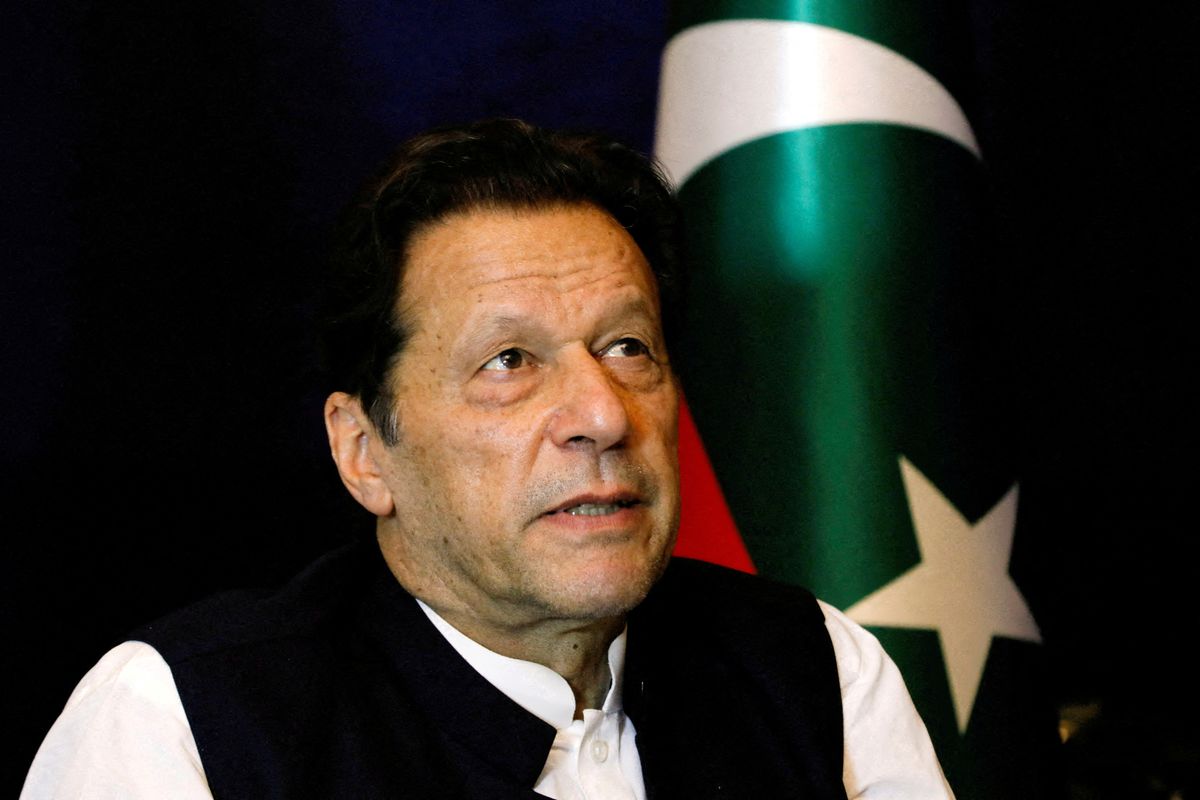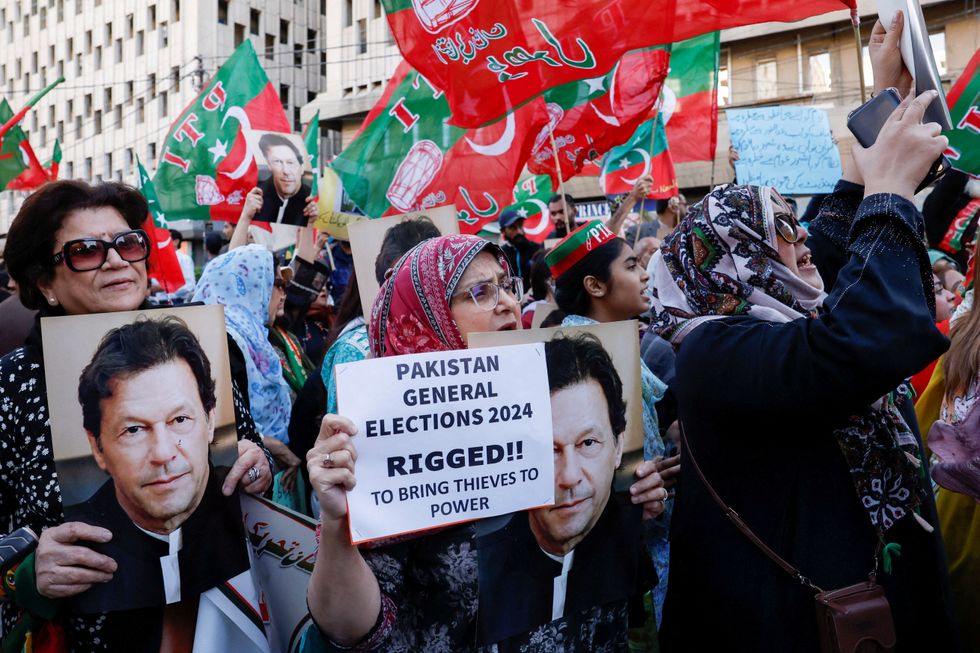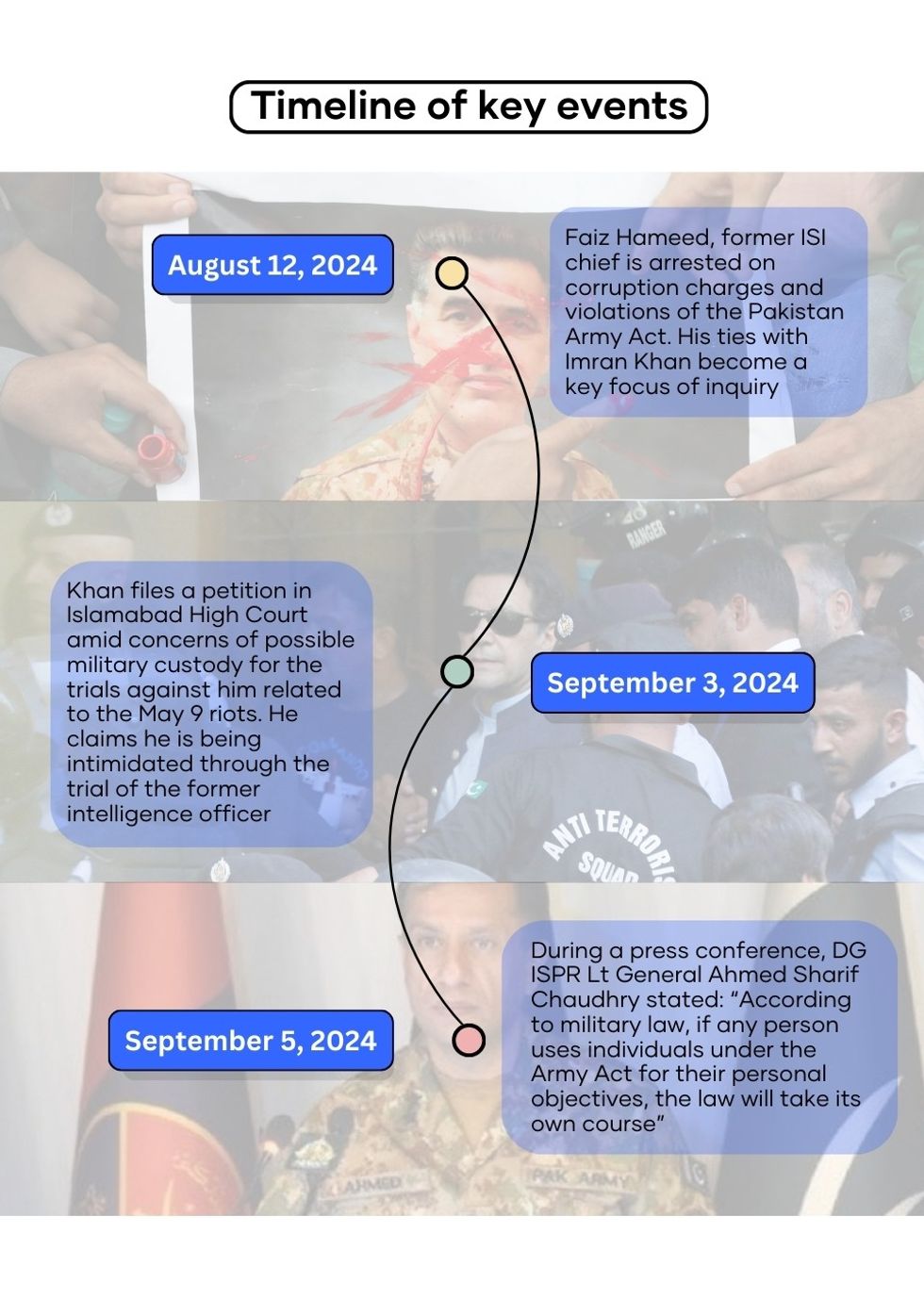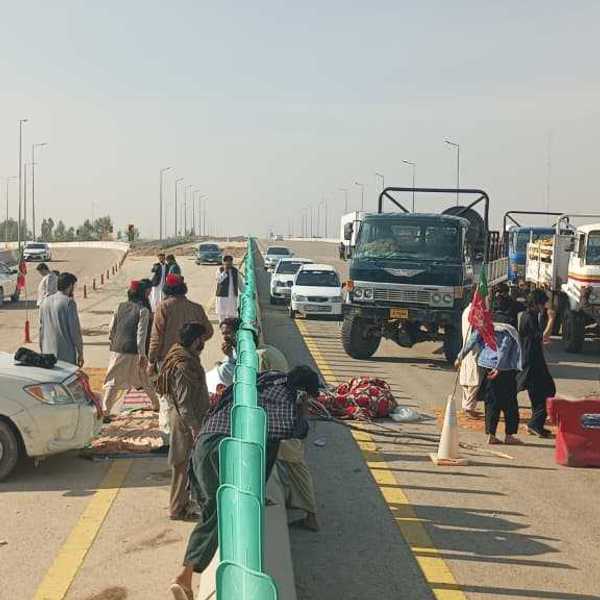Why Imran’s military trial is a bad idea
Political unrest tied to ex-PM's legal battles may destabilize Pakistan's economy, deterring investments

Zain Ul Abideen
Senior Producer
Zain Ul Abideen is an experienced digital journalist with over 12 years in the media industry, having held key editorial positions at top news organizations in Pakistan.

Pakistan’s military has hinted that former prime minister Imran Khan may face a military trial, which would be unprecedented for a civilian leader.
The development comes after the recent arrest of Lt. Gen. (retd) Faiz Hameed, a former intelligence chief known to be close to Imran.
During a media briefing at General Headquarters in Rawalpindi, military spokesman Lt. Gen. Ahmed Sharif Chaudhry suggested that any civilian found using military personnel for political gain could be subject to military law.
When asked directly about Imran’s potential trial, Chaudhry described the matter as "sub judice" but outlined the conditions under which a civilian could face military prosecution.
The spokesman referenced Section 2(d)(i) of the Pakistan Army Act, which allows for the trial of civilians if they attempt to compromise military duty or allegiance. This section of the law governs military conduct and extends the court’s jurisdiction to civilians in specific cases.
Speculation about Imran Khan’s military trial has been rife for months, particularly after he sought legal intervention to prevent such an outcome. His petition to the Islamabad High Court followed growing concerns that he could be implicated in the May 9 unrest, during which his supporters vandalized military installations after his brief detention.
The former prime minister's legal team has argued that the arrest of Faiz Hameed could lead to further charges against the former premier, including treason and mutiny. Both offenses are tried in military courts and carry severe penalties, including the death sentence.
Khan’s lawyer, Naeem Panjutha, quoted him as saying the charges were part of a broader effort to undermine his political standing.

Feud with military
Imran Khan's relationship with Pakistan’s military has been fraught since his ousting in 2022, following a no-confidence vote that he claims was orchestrated by then-army chief Gen. Qamar Javed Bajwa. The military has denied any involvement, but Khan has been vocal about the fallout, which has contributed to the country’s worst political crisis in decades.
The 71-year-old former cricketer remains a polarizing figure, with a large, loyal following. His supporters have reacted violently to his arrests and legal battles, raising concerns that any move to court-martial him could trigger further unrest.
Imran has consistently denied allegations of inciting violence or seeking military intervention in politics. However, his opponents argue that his rhetoric against the army and his closeness to certain military figures have escalated tensions.
Economic ramifications
The potential military trial of a former prime minister has significant economic implications. Pakistan's economy is already under immense pressure, with inflation, a weakening currency, and mounting debt. Any political instability, particularly involving a figure as influential as Imran Khan, could further erode investor confidence.
Uncertainty surrounding Imran Khan’s legal future is likely to deter both domestic and foreign investments, exacerbating Pakistan's liquidity crisis.
Political unrest historically affects economic policy, creating an environment of unpredictability for investors.
Political implications
If a former prime minister is tried in a military court, the political implications would also be profound as it could signal a further shift of power towards the military establishment, reducing the influence of civilian institutions.
It could create the perception that military influence in political affairs is increasing, which could undermine democratic norms and the rule of law in the country. This could alienate political parties and civil society, who have long advocated for civilian supremacy.
Imran Khan’s political party, Pakistan Tehreek-e-Insaf (PTI), enjoys a significant support base. A military trial could further deepen political polarization, with PTI supporters viewing it as a targeted attempt to silence a popular political leader.
Protests and rallies in support of Imran Khan could lead to civil unrest, heightening tensions between the government and opposition forces.

Several prominent voices have spoken out against the prospect of a military trial for Imran Khan.
Senior journalist Amir Zia warned that the military’s involvement in such a high-profile case would only fuel controversy.
“A state institution should not be seen pitted against a popular leader,” he said, adding that the army should avoid becoming entangled in political affairs.
Zahid Hussain, another veteran journalist, echoed these concerns, stating, “The military trial of a civilian leader will have disastrous consequences. The state may not be able to handle the fallout.”
Political analyst Aamir Ilyas Rana observed that, despite the controversies surrounding military courts, Khan had previously supported their use. “Twenty-six civilians were tried in military courts during Imran Khan's tenure,” he said.
Rana also noted that PTI leader Murad Saeed had previously endorsed military trials for individuals who spoke out against the army.








Comments
See what people are discussing